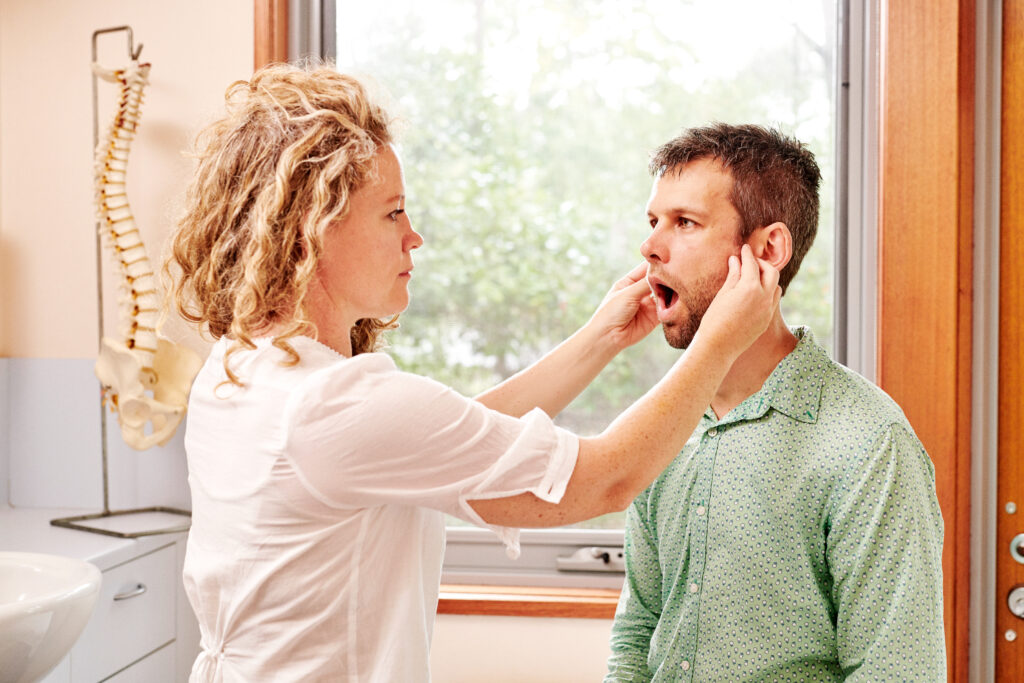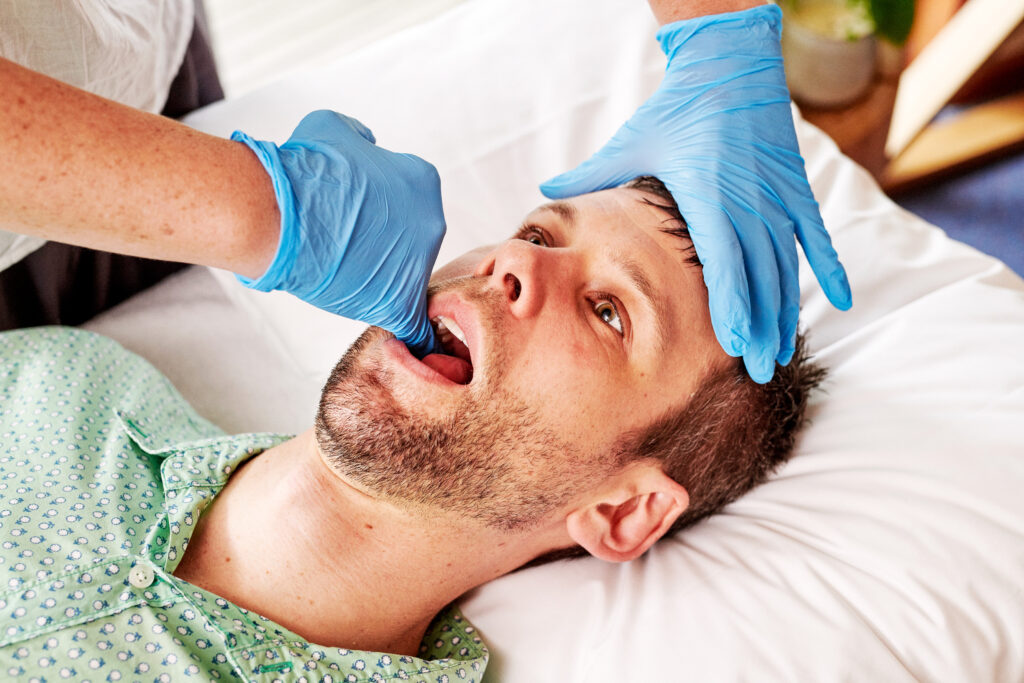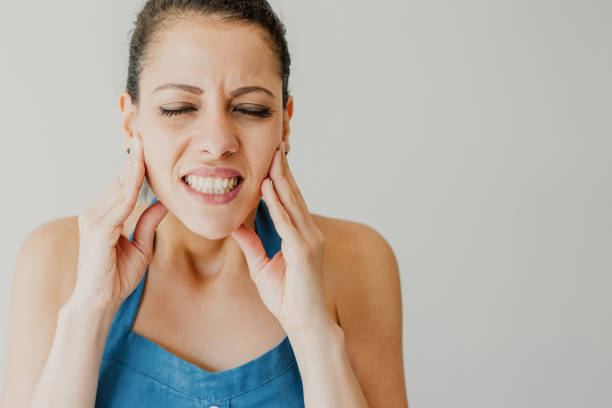
Jaw Tension, Grinding, Craniofacial Pain, TMJ
Many people grind and clench their jaw during the day and at night causing pain and tension in the head, neck and temporomandibular joint. Clenching and grinding is often blamed on stress. Although this is a factor, many people don’t realise that clenching and grinding during sleep can be related to breathing and airway dysfunction.
During sleep the muscles of the throat and tongue relax. If there is already a small airway, or there is low tone in the muscles of the tongue, the tongue relaxes and can fall back into the airway causing a blockage (snoring/sleep apnoea). This blockage stimulates the body to wake itself up or compensate by clenching or grinding (the body attempting to move the jaw forward) thus opening the airway and allowing the body to breathe again. This can put a lot of stress on the muscles of the jaw, teeth and neck, causing tension headaches, jaw pain and neck pain.
Jaw Tension, Grinding, Tension Headaches
Many people grind and clench their jaw during the day and at night causing pain and tension in the head, neck, and temporomandibular joint. Clenching and grinding are often blamed on stress. Although this is a factor, many people don’t realize that clenching and grinding during sleep can be related to breathing and airway dysfunction.
During sleep the muscles of the throat and tongue relax. If there is already a small airway, or there is low tone in the muscles of the tongue, the tongue relaxes and can fall back into the airway causing a blockage (snoring/sleep apnoea). This blockage stimulates the body to wake itself up or compensate by clenching or grinding (the body attempting to move the jaw forward) thus opening the airway and allowing the body to breathe again.
This can put considerable stress on the muscles of the jaw, teeth and neck causing tension headaches, jaw pain and neck pain.
With manual therapy techniques, tailored to specific client needs, I focus on assessing and treating clients to help alleviate pain, improve jaw function & mobility, and reduce symptoms associated with the following -:
- Jaw Pain
- Clenching
- Grinding (Bruxism)
- Temporomandibular Joint Dysfunction (TMD)



